36 Arguments for the Existence of God - [9]
“He Kant possibly mean that” had been the quip of Cass’s that had been anointed by Lucinda’s titter.
Cass had never been good at this sort of thing, making fun and making light, but Lucinda’s proximity, or, more to the point, her having so deliberately chosen proximity to him, had revved up his wit. The Katzenbaum auditorium was subterranean and windowless, but it seemed to have become ungloomed ever since Lucinda claimed her seat, as if some of the dazzle from outdoors had been tracked in on the bottom of her shoes.
It was one of those September days, the sky looking like an inverted swimming pool, and the white-gold liquor of afternoon light drizzling through the leaf-heavy trees and pooling on lawns and walkways and the gleaming crowns of Frankfurter’s youth. Cass had quoted the line “Glory be to God for dappled things” to himself, which was from a favorite poem by Gerard Manley Hopkins, as he made his way across the stippled campus. “Glory be to God for dappled things- / For skies of couple-colour as a brinded cow; / For rose-moles all in stipple upon trout that swim; / Fresh-firecoal chestnut-falls; finches’ wings.” And then that stunning second stanza, beginning, “All things counter, original, spare, strange; / Whatever is fickle, freckled (who knows how?)…”
How was Cass to know that Lucinda Mandelbaum was slightly prosopagnosic, “prosopagnosia” being the technical term for an inability to recognize faces? Arguably, Lucinda’s prosopagnosia had nothing to do with any malfunctioning in her fusiform gyrus. Arguably, prosopagnosia, in the case of Lucinda, was more a matter of mental efficiency than deficiency. Lucinda tended, largely unconsciously, to group faces into kinds, and then was likely to exchange one of a kind for another of the same kind. She could often, when her mistake was discovered, reconstruct the logic of her unconscious taxonomy. Her confusions sometimes led to awkwardnesses, but Lucinda generally knew how to cover herself, and her errors more often amused than alarmed her.
“Did he say brain scans or brain scams?” Lucinda whispered now into Cass’s tingling pinna.
“Do Lipkins recognize the difference?” Cass had returned with breathtaking celerity.
Cass had never been quick on the verbal draw, and the years he had lived with Pascale had buried him deeper beneath his reticence. Pascale went after statements with ferocity, ripping them into phonetic shreds. It was her poetic technique. At least several of her poems had been the result of her free-verse attack on some phrase he had uttered, including the prize-winning “Je ne peux pas te nier ça”: “I can’t deny you that.”
There had been something lupine about Pascale Puissant, and, as much as he had loved her, it had turned him cautious. Her beauty-her pointed features, hollowed cheeks, burning black eyes-had always reminded him of a starved wolf. Even the gash across her mouth of her deep-red lipstick, often a bit smeared, suggested bloodstains from a wild meal of still-quivering flesh that had left her just as starved.
Narrow as a boy of twelve, her tiny derrière able to fit into Cass’s large palm, her voice, heavily accented, dissolving like smoke into thin air, Pascale was nonetheless a force with which to be reckoned. Her father, a mathematician at the Institut des Hautes Etudes Scientifiques, in Bures-sur-Yvette, twenty kilometers outside of Paris, had chosen her name in honor of Blaise Pascal, who had founded mathematical probability theory when a gambler asked him for some rules to govern rational game-tabling.
After her parents divorced, when she was nine, Pascale had chosen to live with her father. It was pleasant for her at Bures-sur-Yvette, all the distracted mathematicians living together in housing owned by the Institut on parklike grounds, a playground in the middle with a jungle gym from which she had liked to hang upside down, “for the images and the vertigo.” All the children she played with were the offspring of mathematicians, which made them less annoying, in general, than typical children. Also, her father left her alone far more than her mother would have. So she chose to live with her father, therefore not with her mother, and therefore refused to see her mother anymore.
“Refused to see her? That seems extreme. Had she mistreated you?”
“No, not at all. What do you mean? I just told you that I had to make the decision. I had to fabricate it out of my will. If she had been a bad mother, then I wouldn’t have had to make the decision. The situation”- she pronounced it as a French word-“would have decided.”
“But why wouldn’t you see her anymore, just to visit, now and then?”
“Now and then.” She paused for a few moments, and Cass wondered whether she was going to go to work on that expression, but she let it go. “No, there could be no now and then. If I had chosen to live with Marie-France, then it would have been exactly the same, then I would have refused to see Papa.”
“Marie-France? That’s your mother?”
“But of course! Who else?”
She glared. He wasn’t paying attention. She often glared, thinking that he was lacking in attention. She was wrong. When it came to Pascale, whatever it was Cass was lacking, it wasn’t attention.
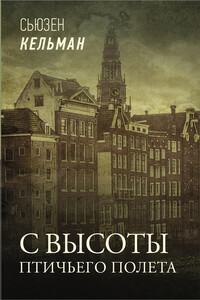
1941 год. Амстердам оккупирован нацистами. Профессор Йозеф Хельд понимает, что теперь его родной город во власти разрушительной, уничтожающей все на своем пути силы, которая не знает ни жалости, ни сострадания. И, казалось бы, Хельду ничего не остается, кроме как покорится новому режиму, переступив через себя. Сделать так, как поступает большинство, – молчаливо смириться со своей участью. Но столкнувшись с нацистским произволом, Хельд больше не может закрывать глаза. Один из его студентов, Майкл Блюм, вызвал интерес гестапо.
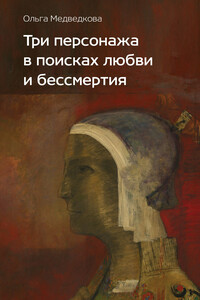
Что между ними общего? На первый взгляд ничего. Средневековую принцессу куда-то зачем-то везут, она оказывается в совсем ином мире, в Италии эпохи Возрождения и там встречается с… В середине XVIII века умница-вдова умело и со вкусом ведет дела издательского дома во французском провинциальном городке. Все у нее идет по хорошо продуманному плану и вдруг… Поляк-филолог, родившийся в Лондоне в конце XIX века, смотрит из окон своей римской квартиры на Авентинский холм и о чем-то мечтает. Потом с риском для жизни спускается с лестницы, выходит на улицу и тут… Три персонажа, три истории, три эпохи, разные страны; три стиля жизни, мыслей, чувств; три модуса повествования, свойственные этим странам и тем временам.
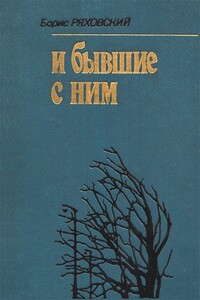
Герои романа выросли в провинции. Сегодня они — москвичи, утвердившиеся в многослойной жизни столицы. Дружбу их питает не только память о речке детства, об аллеях старинного городского сада в те времена, когда носили они брюки-клеш и парусиновые туфли обновляли зубной пастой, когда нервно готовились к конкурсам в московские вузы. Те конкурсы давно позади, сейчас друзья проходят изо дня в день гораздо более трудный конкурс. Напряженная деловая жизнь Москвы с ее индустриальной организацией труда, с ее духовными ценностями постоянно испытывает профессиональную ответственность героев, их гражданственность, которая невозможна без развитой человечности.

«А все так и сложилось — как нарочно, будто подстроил кто. И жена Арсению досталась такая, что только держись. Что называется — черт подсунул. Арсений про Васену Власьевну так и говорил: нечистый сосватал. Другой бы давно сбежал куда глаза глядят, а Арсений ничего, вроде бы даже приладился как-то».
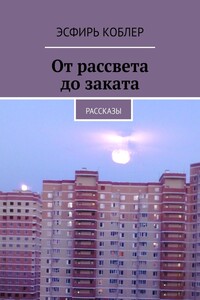
В этой книге собраны небольшие лирические рассказы. «Ещё в раннем детстве, в деревенском моём детстве, я поняла, что можно разговаривать с деревьями, перекликаться с птицами, говорить с облаками. В самые тяжёлые минуты жизни уходила я к ним, к тому неживому, что было для меня самым живым. И теперь, когда душа моя выжжена, только к небу, деревьям и цветам могу обращаться я на равных — они поймут». Книга издана при поддержке Министерства культуры РФ и Московского союза литераторов.
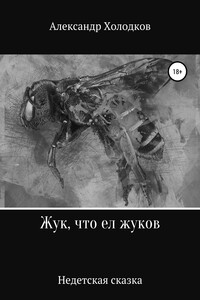
Жестокая и смешная сказка с множеством натуралистичных сцен насилия. Читается за 20-30 минут. Прекрасно подойдет для странного летнего вечера. «Жук, что ел жуков» – это макросъемка мира, что скрыт от нас в траве и листве. Здесь зарождаются и гибнут народы, кипят войны и революции, а один человеческий день составляет целую эпоху. Вместе с Жуком и Клещом вы отправитесь в опасное путешествие с не менее опасными последствиями.